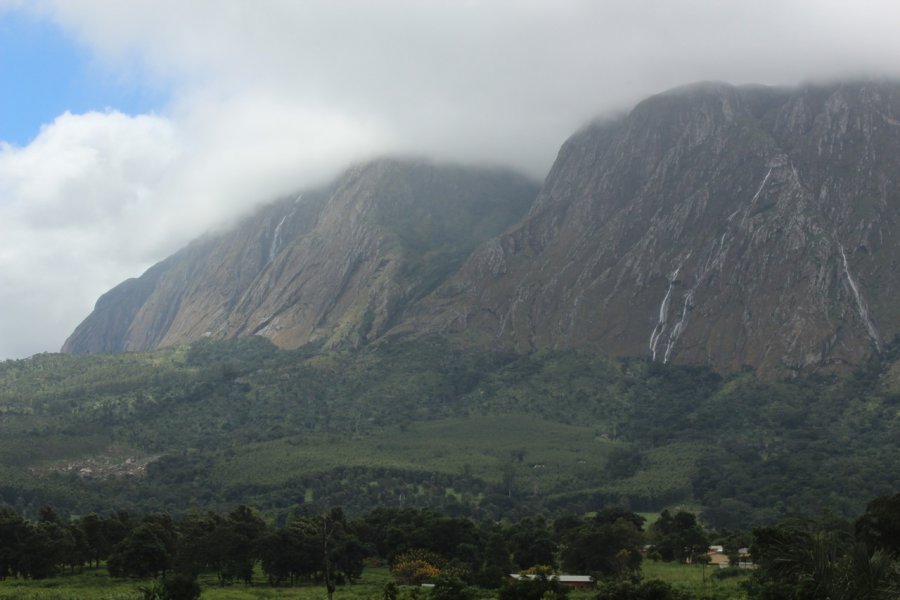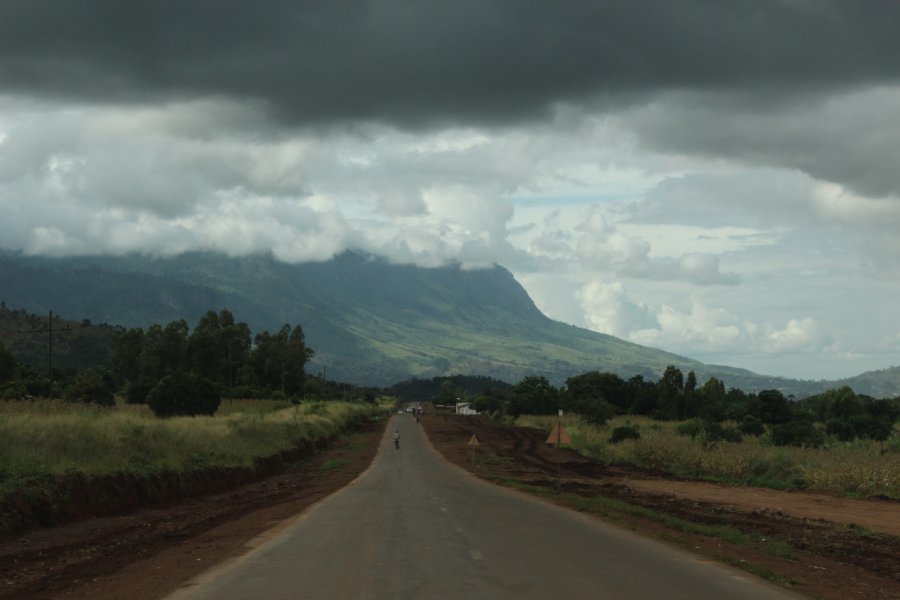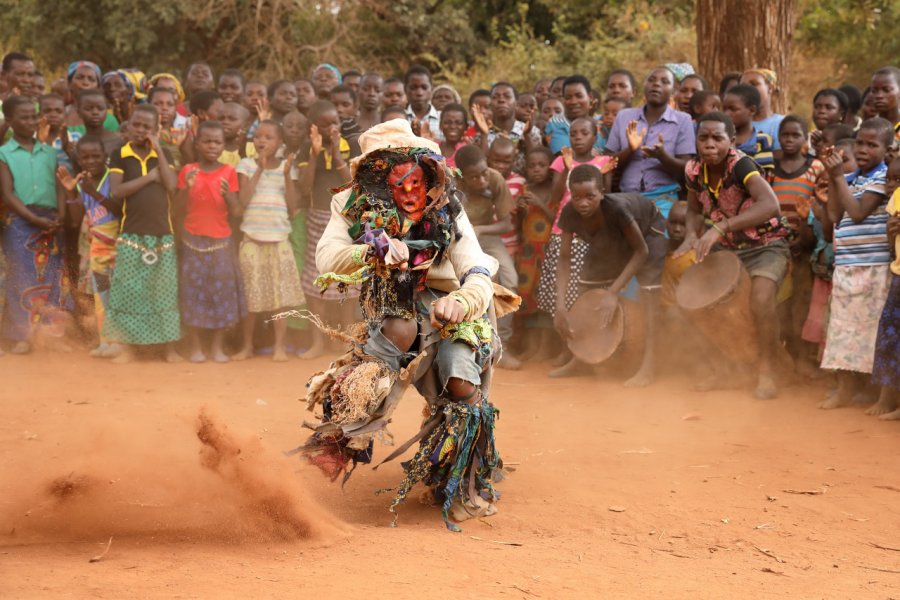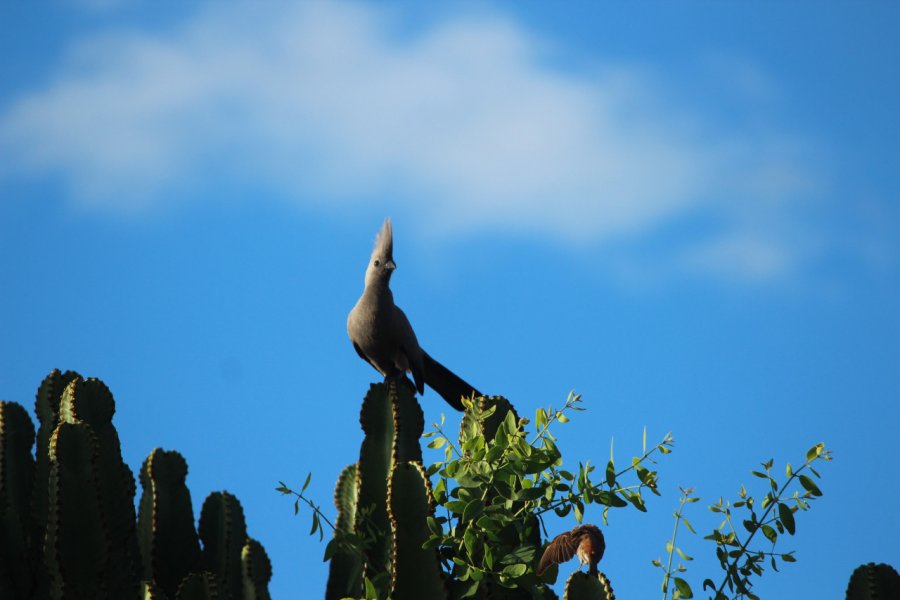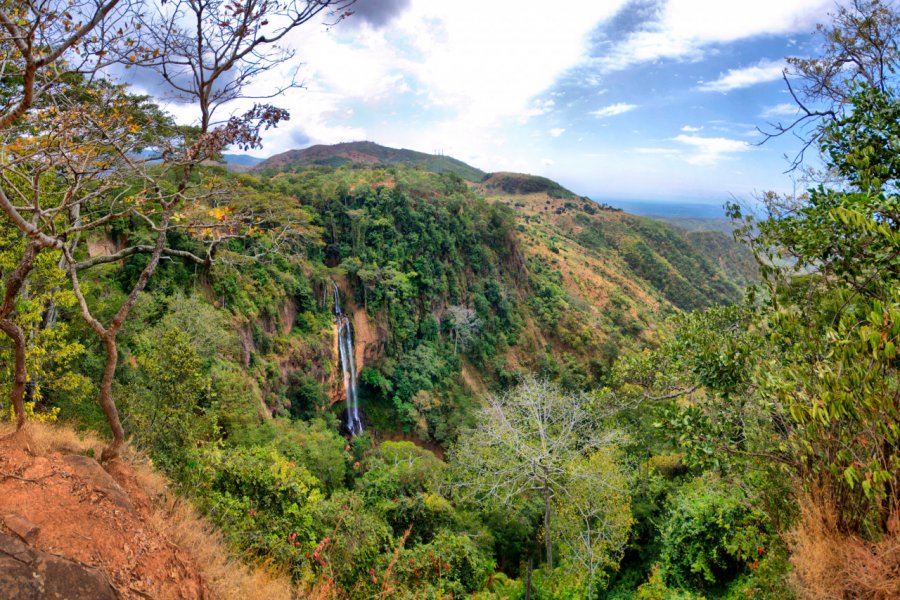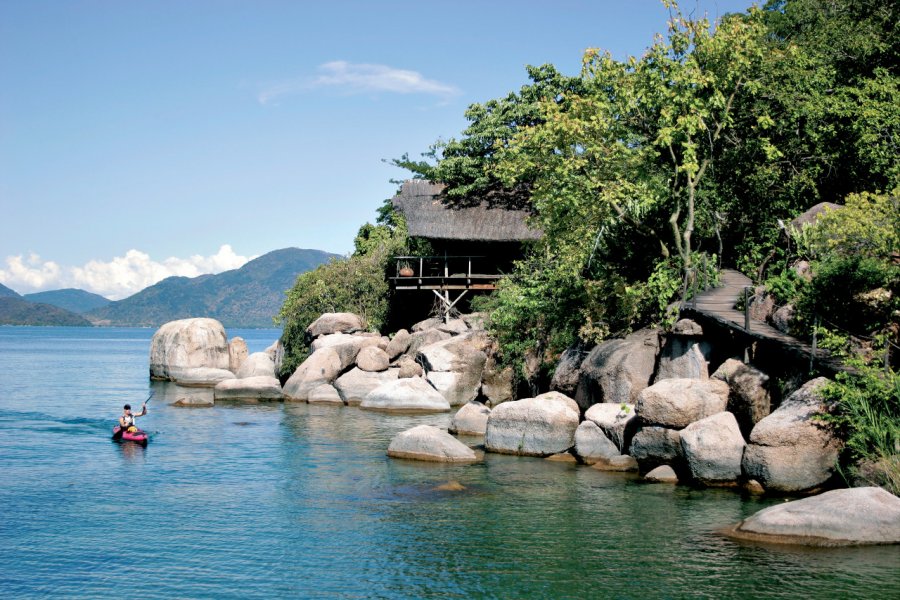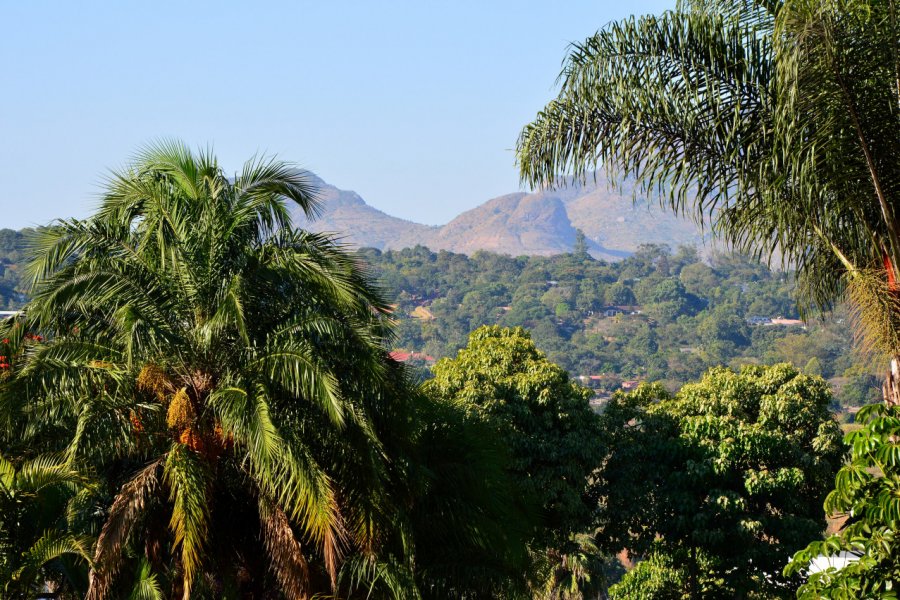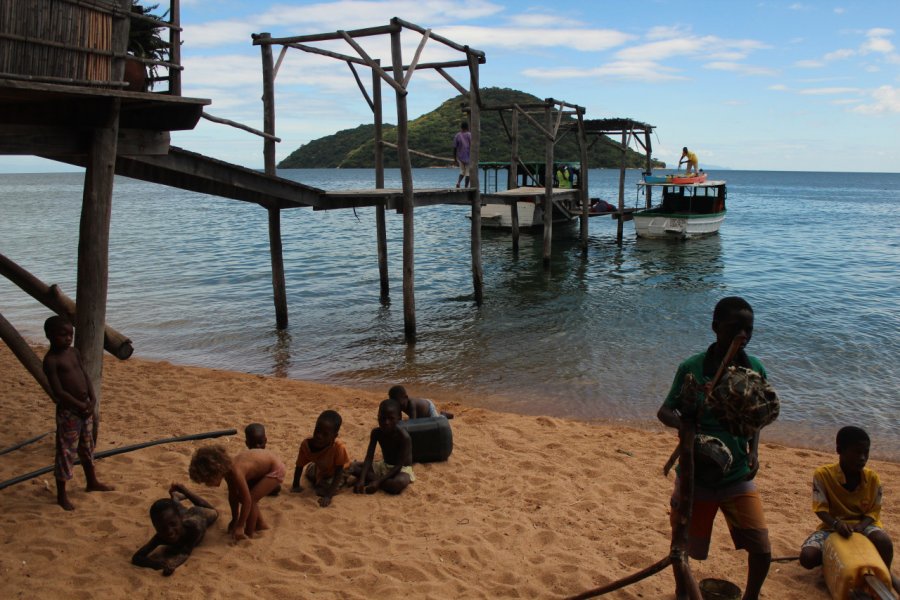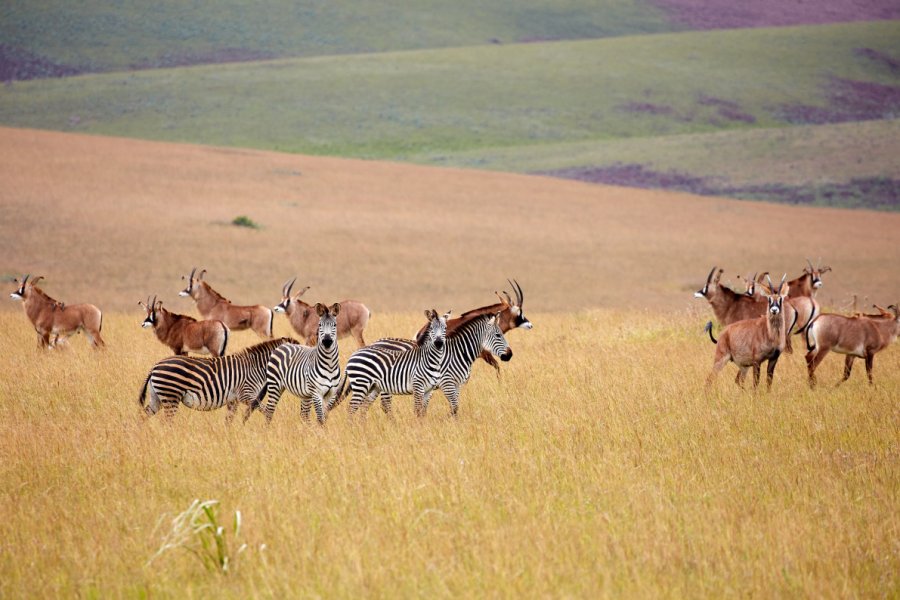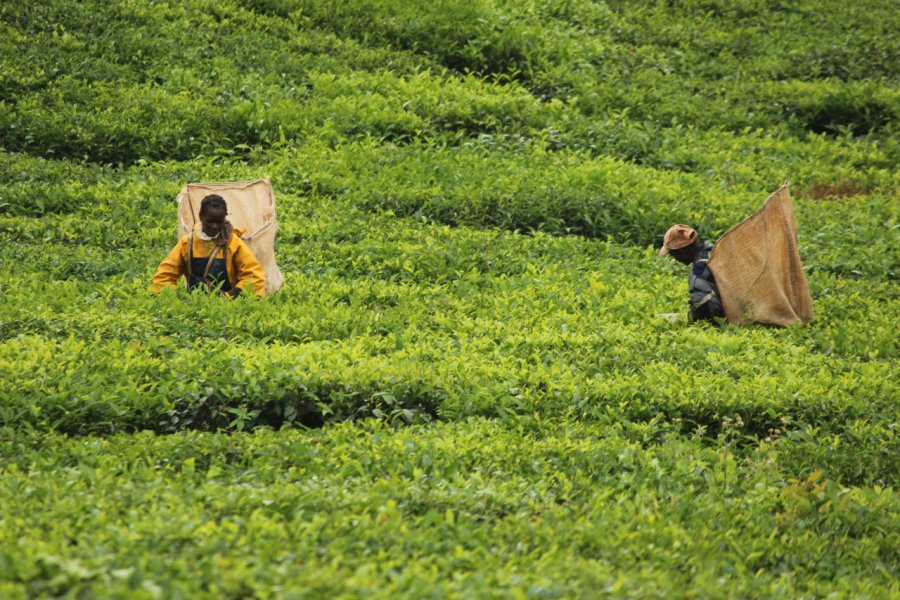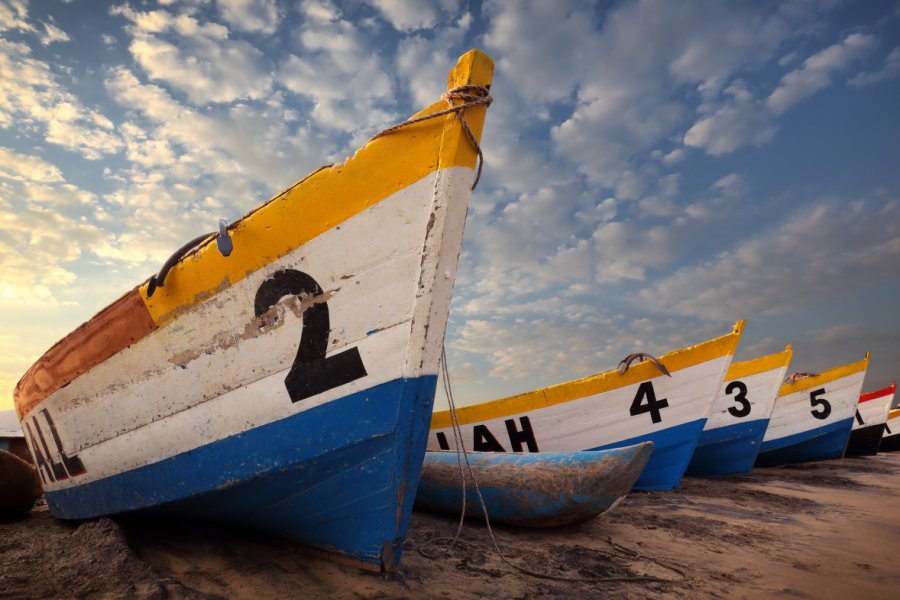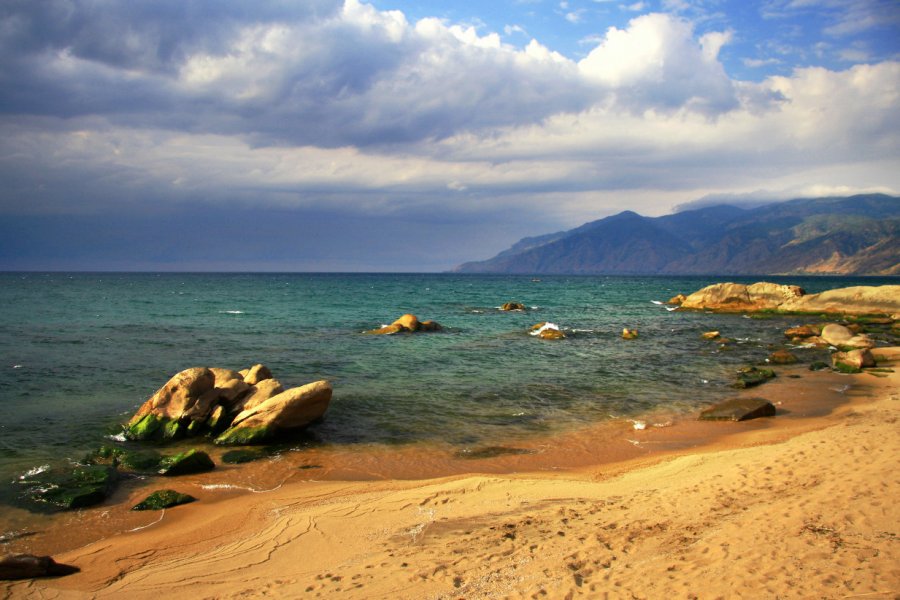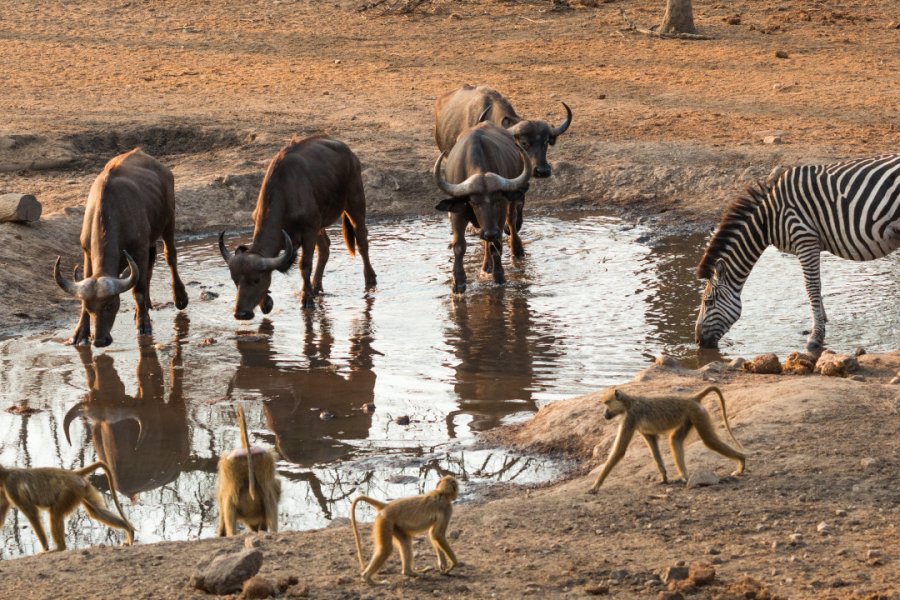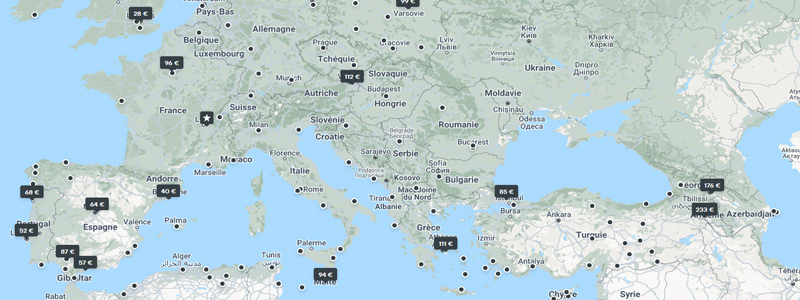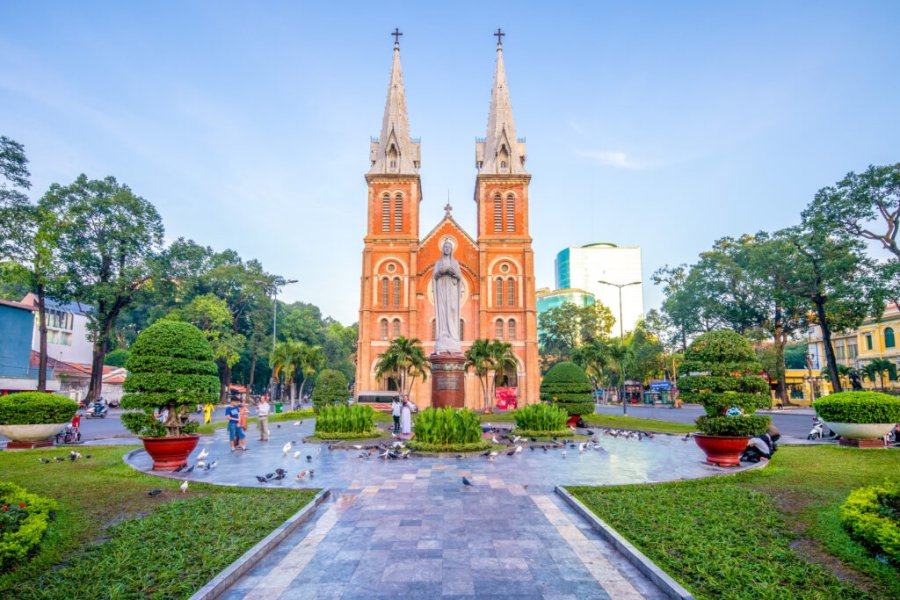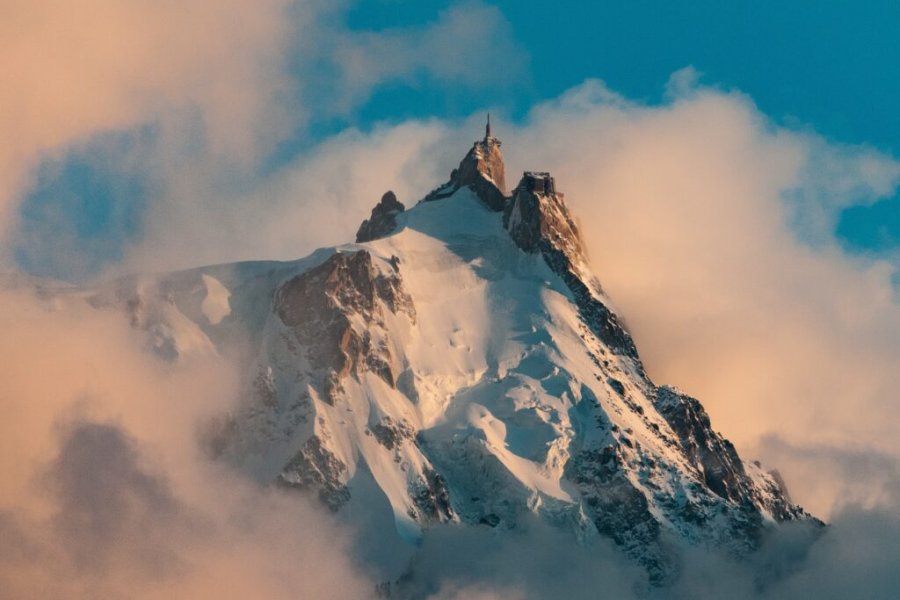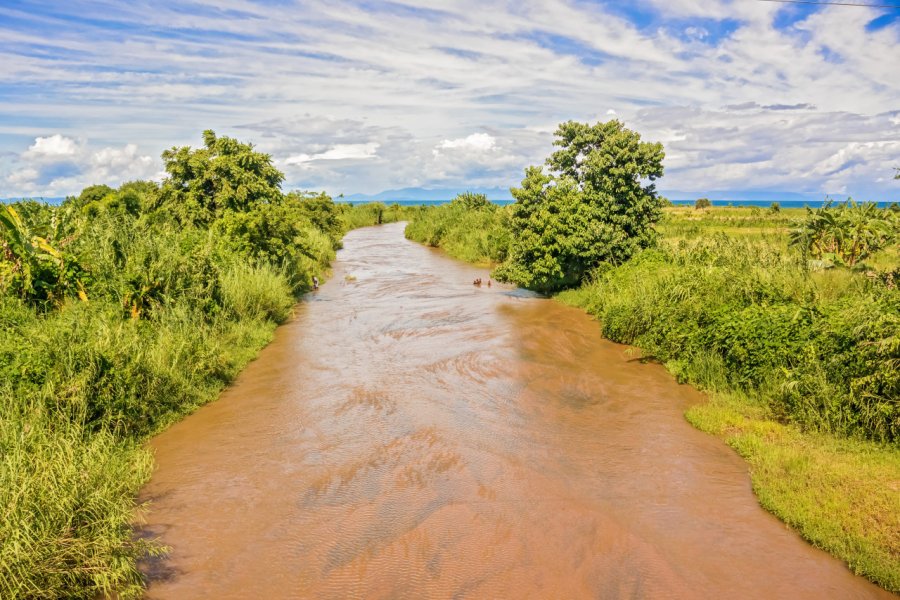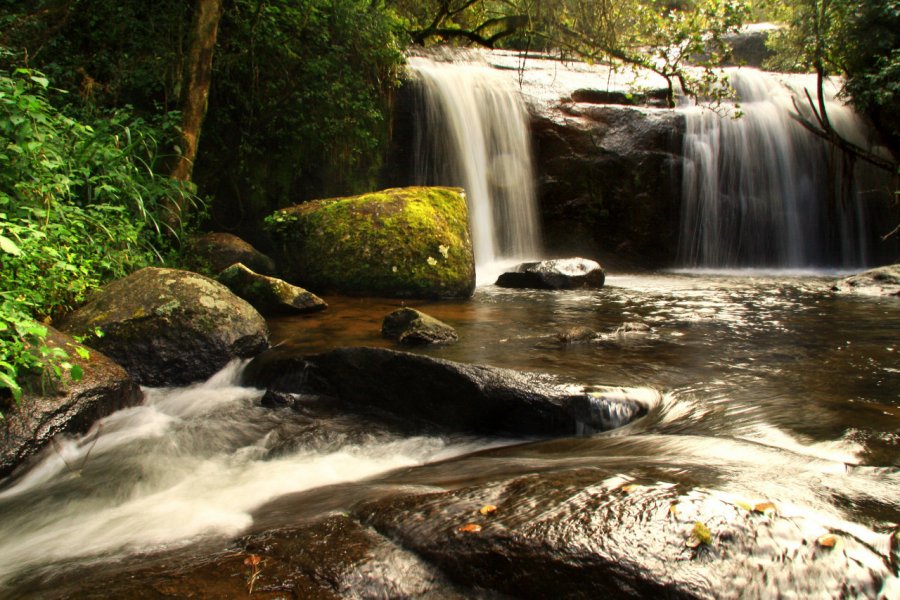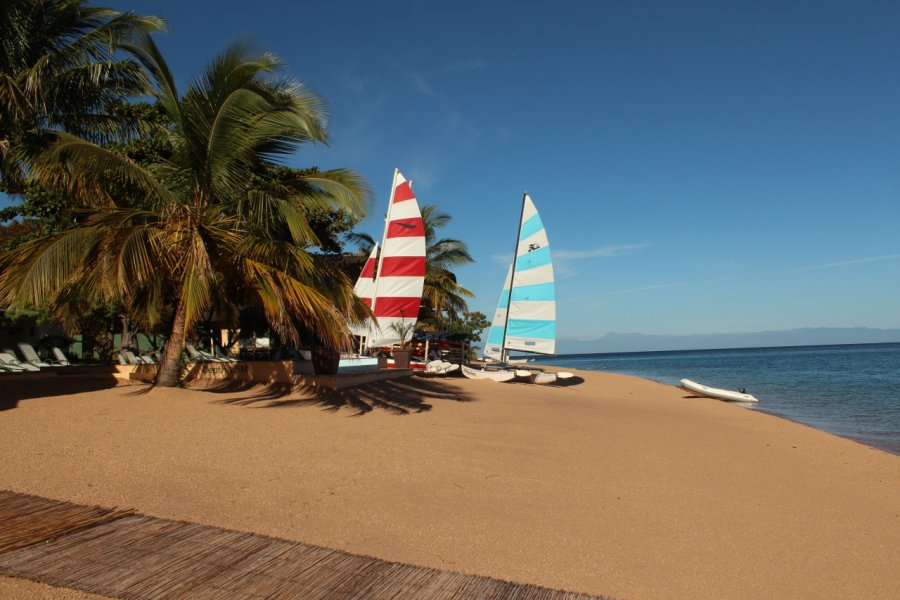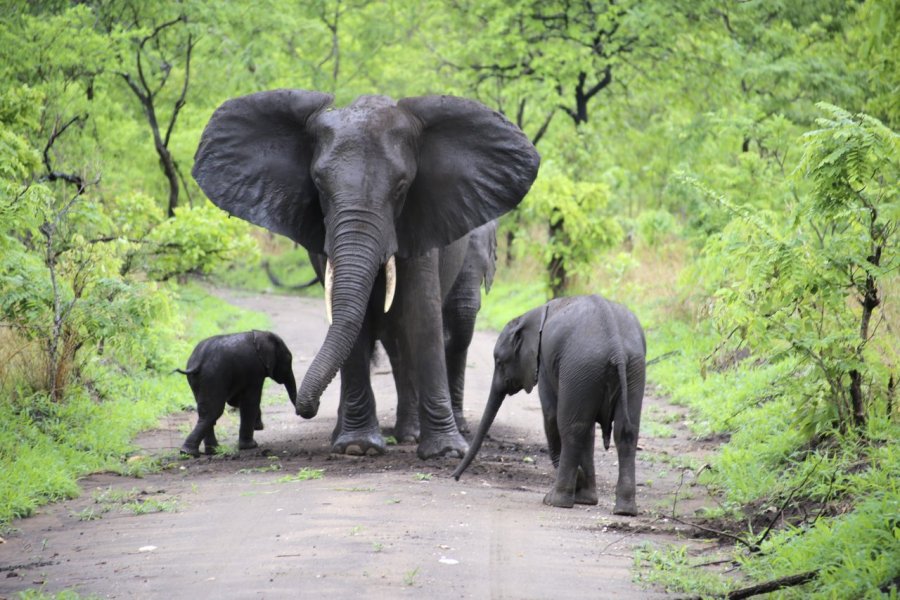Travel Guide Malawi
Known as the "Warm Heart of Africa", this destination is a little wonder that deserves your undivided attention. With our Malawi travel guide, you're ready to explore the thousand and one riches of this little-known paradise!
Located in southern Africa, Malawi is bordered by Zambia, Tanzania and Mozambique. The country is best known for Lake Malawi, an immense expanse of freshwater stretching for over 500 kilometers. The lake is a veritable Eden for diving, snorkeling and sailing enthusiasts. Fine sandy beaches such as Cape Maclear offer unrivalled relaxation.
This mysterious land offers luxury hotels and lodges nestled in lush green forests or scattered like jewels along the lake's shores and islands.
Have you always dreamed of seeing the Big Five? Put on your Indiana Jones hat and set off on safari! Majestic lions, stealthy leopards, massive elephants, impressive rhinos and robust buffalo: they're all here in Liwonde National Park and Majete Wildlife Reserve.
But if adventure beckons, then put on your hiking boots! The trails of the Mulanje massif will sculpt your muscles and nourish your soul. The air is pure, the silence is golden, and the beauty of nature is breathtaking. And finally, when you're ready to put down your rucksack, natural pools with crystal-clear waters invite you to take a refreshing dip.
Local markets, such as the one in Lilongwe, the capital, are places where you can immerse yourself in Malawian culture, discover local crafts and sample the country's cuisine. Be sure to try nsima, the corn porridge that is the staple diet here.
For tea lovers, a visit to the Thyolo region is a must. Tea plantations stretch as far as the eye can see across a peaceful green landscape. You can even take part in a tasting session and learn more about the tea-making process. For an explosive cocktail of adventure and relaxation, Malawi is the place to be. Escape to this heavenly corner of Africa for an unforgettable getaway!
What to visit Malawi?
Suggested addresses Malawi
When to go to Malawi?
If you dream of lush savannahs, pristine beaches and a cultural explosion that captures your soul, when is the best time to go to Malawi? Here are the answers with our season-by-season guide.
January and February are the rainy season in Malawi. This may be a time to avoid if you're not a fan of humidity. However, these months offer a lush landscape that is ideal for photographers.
March and April offer Malawi in transition. Showers become less frequent, but the landscape remains green and flourishing. If you travel to Malawi in March, you can attend local cultural festivals celebrating the end of the rainy season.
May and June mark the start of the dry season. The best time to visit Malawi is undoubtedly during these months. Temperatures are moderate and wildlife is easier to observe. This is also the time when accommodation prices start to rise.
July and August are the coldest months, but also the most popular for tourism.
When is the best time to go to Malawi to avoid the crowds but still enjoy good weather? Try September and October. The climate is warm and bearable, and the wildlife as impressive as ever.
If you're more the festive type, November is the month of the Lake Malawi Festival. It's an open-air musical experience not to be missed. December is also an interesting option, but expect higher fares due to the end-of-year vacations.
The best time to go to Malawi really depends on your aspirations. For safaris and dream beaches, aim for the dry season between May and October. For a rich cultural experience, March and November are excellent options.
When to go to Malawi? The answer is as diverse as the country itself. So choose the month that suits you best and get ready for adventure!
Weather at the moment
The weather in Malawi varies from season to season, making it a captivating destination all year round! With its tropical climate, the country has clear distinctions between the high and low tourist seasons.
The high season extends from May to October, during the dry season. Temperatures in Lilongwe, the capital, generally oscillate between 10 and 25°C during this period. This is an excellent time to visit Nyika National Park or relax on the beaches of Lake Malawi.
On the other hand, the low season extends from November to April, the rainy season. The temperature in Malawi during these months can rise to 30°C, especially in the south. This is also the time when the landscape is at its greenest and most lush, especially around Blantyre.
Malawi's tropical climate also means high humidity during the rainy season. There is no monsoon as in some other tropical countries, but showers can be heavy and sudden. As you plan your trip, bear in mind that the weather in Malawi will influence your experience.
Malawi is an affordable destination, especially if you compare it with African tourist hotspots such as Kenya or South Africa. The local currency is the Malawian kwacha, which is relatively stable. Credit cards are accepted in major cities and high-end establishments. Cash is still king in rural areas. ATMs are not always reliable, so make sure you have enough cash with you. The US dollar is accepted, especially for tourist activities. Tips are also appreciated.
If you're traveling in eco mode, expect simple but comfortable accommodation and affordable local meals. In the comfort category, you'll have access to mid-range hotels, more organized safaris and a wider variety of restaurants. For those seeking premium services, Malawi offers top-of-the-range lodges, particularly around Lake Malawi, where service and comfort are the order of the day. So, whatever your budget, Malawi offers a range of options to suit your needs.
Travellingto Malawi involves a number of administrative formalities. First of all, nationals of many countries need a visa to enter Malawi. Malawi visas can be obtained either at theembassy or consulate before departure, or on arrival at Lilongwe International Airport. However, to avoid any inconvenience, it is advisable toobtain your visa in advance. Documents required for the visa application generally include a passport valid for at least six months after the date of entry, proof of hotel reservation, and proof of sufficient funds for the stay.
Malawi is a malaria-risk country, so make sure you have the necessary anti-malarial medication and vaccinations for the areas of the country you plan to visit. Furthermore, although not a requirement for entry into Malawi, it is strongly recommended that you take out insurance covering both medical care and emergency evacuation, given the country's limited medical infrastructure.
Secondly, an international driving license is generally required to rent a car. Malawi has a left-hand drive rule, and road conditions may vary.
For any stay in Malawi, health precautions are essential. The local health care system is less developed than in Western Europe, and Malawi does not offer the standards of medical care to which you may be accustomed. Most embassies therefore recommend that you take out medical repatriation insurance before you leave.
We strongly recommend updating your vaccination schedule, especially for diphtheria, tetanus and poliomyelitis. Vaccination against hepatitis A is also recommended. Depending on the length and conditions of your stay, other vaccinations such as hepatitis B or typhoid may be necessary. Consult your doctor before you leave.
Drinking water in Malawi is another area of concern: only drink sealed bottled water, or water that you have boiled or purified yourself. Avoid drinking tap, lake or river water, as this can lead to water-borne diseases such as diarrhea or cholera.
And don't forget to pack a well-equipped first-aid kit . Your usual medicines may be hard to find locally. Don't forget antimalarials, analgesics, antidiarrheals and hand sanitizers. Finally, if you experience a serious health problem during your stay in Malawi, medical repatriation is often preferable to local medical treatment.
Practical information
- When to travel?
- Weather forecast
- Budget
- Formalities
- Health
- How to travel by yourself?
- How to get organized?
- Getting around
Media
How to go to Malawi? Our advice & tips
If you're looking for a hassle-free holidayin Malawi, a package tour is the way to go. Several travel agencies offer complete packages covering transport, accommodation, meals and, of course, guided tours of the country's must-sees. From safaris to mountain hikes to excursions to Lake Malawi, you can rely on the expertise of local guides for a safe and rewarding experience.
One of the greatest advantages of an organized trip is peace of mind. Agencies often have partnerships with local hotels and service providers. Peace of mind and quality! What's more, logistical aspects such as airport transfers and internal travel are generally well planned. Nevertheless, it's important to choose your travel agency carefully, and to do so, check online reviews. An organized trip to Malawi offers the perfect combination of discovery and relaxation!
Discover our selection of travel agencies for this destinationTravelling alone in Malawi offers great freedom, but you need to be well prepared to make the most of it. Plan your itinerary well and make hotel reservations in advance, especially if you're traveling during the peak tourist season.
In terms of transport, the road network is constantly improving, but some remote areas are difficult to access. We recommend renting a 4x4 if you plan to explore less-developed areas. Buses and minibuses also connect the main towns, but they can be crowded and less comfortable.
And don't forget to take health precautions. Consult your doctor for any necessary vaccinations, and make sure you take out travel insurance to cover medical expenses and repatriation. Malawi is relatively safe, but as always, keep an eye on your personal belongings and avoid venturing out alone at night in less-frequented areas. Stay open to the unexpected and go solo in Malawi!
To get around Malawi, several options exist, but bear in mind that Malawi has mainly unpaved roads, so a 4x4 is preferable for exploring the territory, especially if you plan to venture off the beaten track!
Public transport, especially buses and minibuses, is an economical way of getting around between the big cities. However, these vehicles are crowded and less comfortable. There are also cabs and rickshaws in urban areas for short trips.
For lake destinations, boats and ferries are available, especially to the islands of Lake Malawi. However, check timetables and safety conditions.
